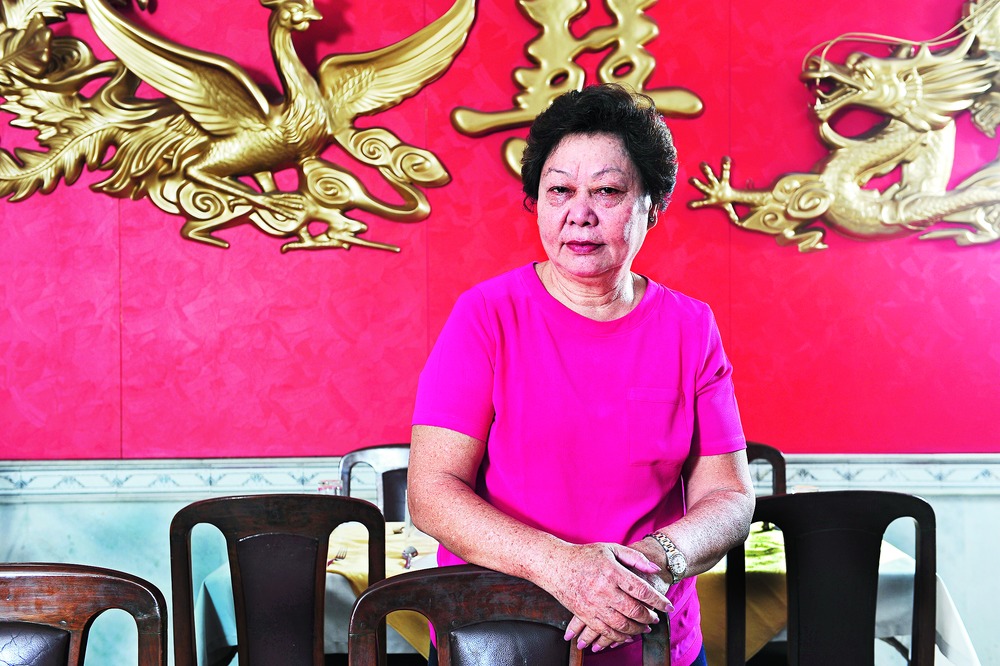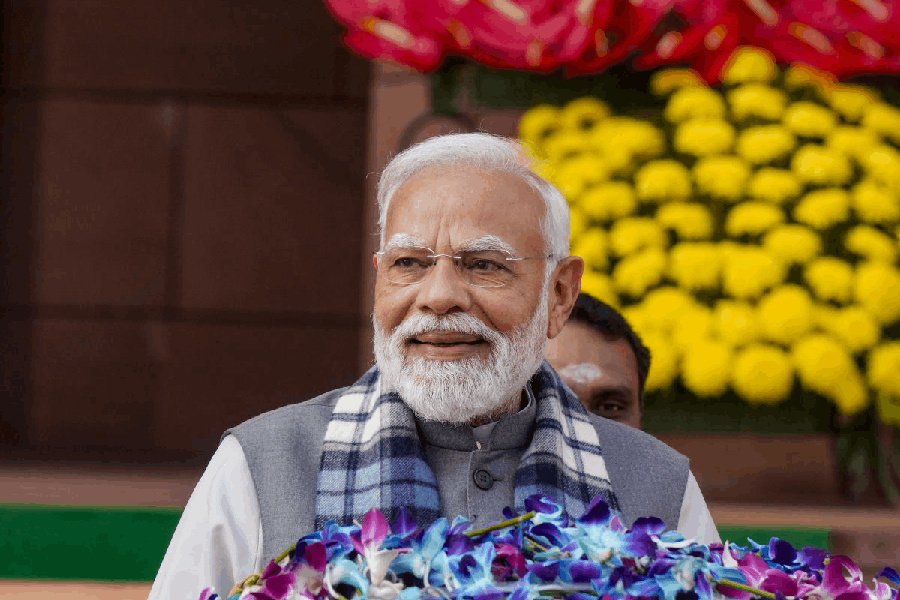

In the beginning were 10 tables. It was this eatery owned by her parents up in the hills of Shillong that set into motion the story of her extraordinary life and success. For this is where Monica Liu's fascinating journey took off, one in which her grit and the curveballs life threw at her played each other in equal measure.
Well, almost. Until the latter had no choice but straighten up. It was in this modest cafe where, as a girl of six or seven, she was given to man the cash counter. Life was hard work; her parents stern and she, the eldest of six siblings in a migrant Chinese family.
Monica went to the local Chinese school that had about 60 students. After school , she sat in their shop and noted down the bill at each table, on a sheet of paper with pencilled grids - Rs 1.25, Rs 2 and so on. That's what a cup of tea and a plate of pork chow cost in the early Sixties. One day, when a customer pocketed more change than was his due - doled out by the little hands through which had slipped an error in calculation - there were consequences to be faced. She ran after him - Bhaiyya, humko paisa wapas de do. But all he gave was a push and she fell. The beating followed, when her father found out about the loss. Little Monica, however, was strong, she bore it. "I did not cry. Why should I say sorry? After all, I was only a child and had made a mistake."
Today, Monica Liu owns five restaurants in Calcutta; another one in Durgapur closed down as it wasn't doing well. Kim Ling in Tangra, set up in 1991, is her firstborn in the business. Families and friends groups swear by the cosy evenings spent there or at Beijing, or Tung Fong in Park Street, or the two Mandarins in SoKo - South Kolkata for the still uninitiated. Over the years, Big Boss - as her 250-odd restaurant staff refer to her - has been shaping and pleasing the taste buds of Calcutta. Her clientele is impressive - from the late Jyoti Basu to the foreign delegates at the West Bengal business summit last month, and everyone in between.
Business now, however, means a lot more. It has spread beyond the palate to real estate, supply of raw materials and beauty salons. Sounds incredible for a woman of 63? "How do the Tata, Birlas and Ambanis do it? Employ good people, trust them and give them a share of your profits," she says coolly.
Moni Choudhury, her trusted man for 15 years, sees a benevolent soul in her, and often a fanciful one that sometimes zooms off in a Porsche, or races her sons on a bike. She favours the Bullet as the most comfortable two-wheel ride. "She is like Mother Teresa... never disappoints anyone who comes for help." Lowering his voice, he adds, "Many times Madam has been asked to contest the local polls, but she will not hear of it."
Perhaps that's the kind of mileage you gain if you keep walking, no matter what. In 1962, when the Sino-Indian war erupted, Chinese families from across the country were imprisoned. They were spies working for the Chinese government, was how the Indian establishment saw them. "We children did not understand what it meant. My parents were worried, but we were still together. I never felt scared." At nine, Monica went to jail, in Shillong. "It was full of mad men and women, who had nowhere to go." After 15 days, a train took them to Deoli in Rajasthan. The journey lasted eight days. "I remember everything. My memory was sharper than of anyone my age," she reminds.
There are no official records of exactly how many Chinese people were sent to the Deoli camp. In the British era, Deoli had been a prisoner of war camp. Jawaharlal Nehru was detained there once. Life took a harsh turn for Monica's family, but carried on. The weather was unbearably hot, and the food inedible. The rice was unwashed and smelly. So everyday, when it was time for the tap to spout water, Monica - prisoner no. 880 - washed it thoroughly. It was then turned into porridge, with a little help from those in the kitchen.
The seasons rolled by and the inmates of Deoli seemed to have been forgotten. Five years later, the Chinese government sounded that immigrants could return. Ships were sent to ports in Madras and Bombay and many opted to go to a country they did not know. Not Monica's father. At least we know this land, he thought. Assam's Nagaon jail thus became the family's next home. Three families in one hall. And sunlight in broken columns.
There, one evening, a young man - an educated Chinese from Calcutta who had ventured into Assam in search of work and was swiftly jailed - showed her a letter. "Copy this," he hushed. It was a missive to the home minister, a plea for release. But Monica, now 14 or 15, had completely forgotten how to write; Deoli had erased much of the reading and writing her Shillong school taught her. She sought the help of a friend, Patricia, who soon backed away - her parents feared it would be tread-ing into risky territory. Once again, crisis gleamed as opportunity. Monica burnt the midnight candle, literally, to copy the page - each letter, each line. About 10 days later, the family was released.
"I shall never forget the food and blankets that Chinese people in Shillong - who were released earlier - welcomed us with," Monica recalls. She might put it all down in a book someday, in Chinese. In jail, there was free food, clothes and medicines. What now? "I heard my dad tell my mother that he had only Rs 24 in his pocket." Eventually they rented a house near a school. The children simply loved the momos - or pao - the Liu family made. They were kind of fluffy, and stuffed with pork, onions and cabbage. Ten pieces for Re 1. Dinner for the Liu children consisted of whatever didn't get sold.
Years later, much after her three children had grown up, the entrepreneur in her broke free. She collaborated with her husband, who owns a business in leather and is a much-respected man in the community. However, she soon realised that she needed to steer her own ship. "You have to serve your customers quick; you have to change according to the demand. My ideas and his ideas were completely different," she explains. And the restaurants popped up, one after the other.
Her empire runs smooth today, her sharpness and caprice notwithstanding. She doesn't suffer fools. Her sons may accuse her of being partial to their wives. Or she catches a waiter being rude to a customer. Or Moni has faltered and she threatens to smash his phone.
What's with the name that seems to have gotten stuck to her - Don of Chinatown? The grandmother of nine laughs it away. When Kim Ling came up 26 years ago, many eyebrows were raised. The local dadas couldn't digest the idea of an immigrant doing business in their para. They believed it was their right to eat there for free.
The strongwoman, however, made it clear that free meals were not on her menu. If you behave like goons, I will return it in kind, she warned. "I have not even slapped anyone, ever. But everyone knows me," she says matter-of-factly, looking at her painted fingernails and murmuring that the chipped bit needed to be fixed.
After all, the most effective way to do it, is to just do it.










